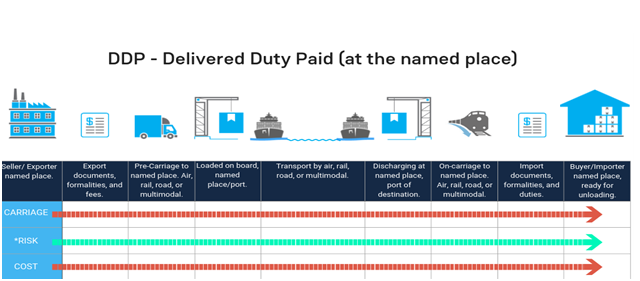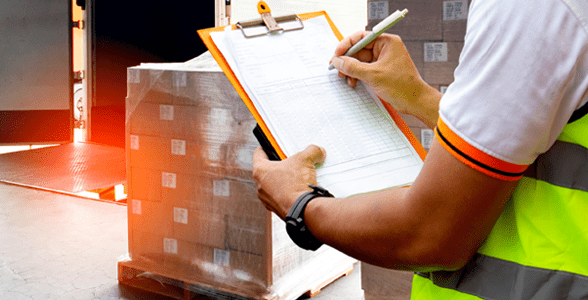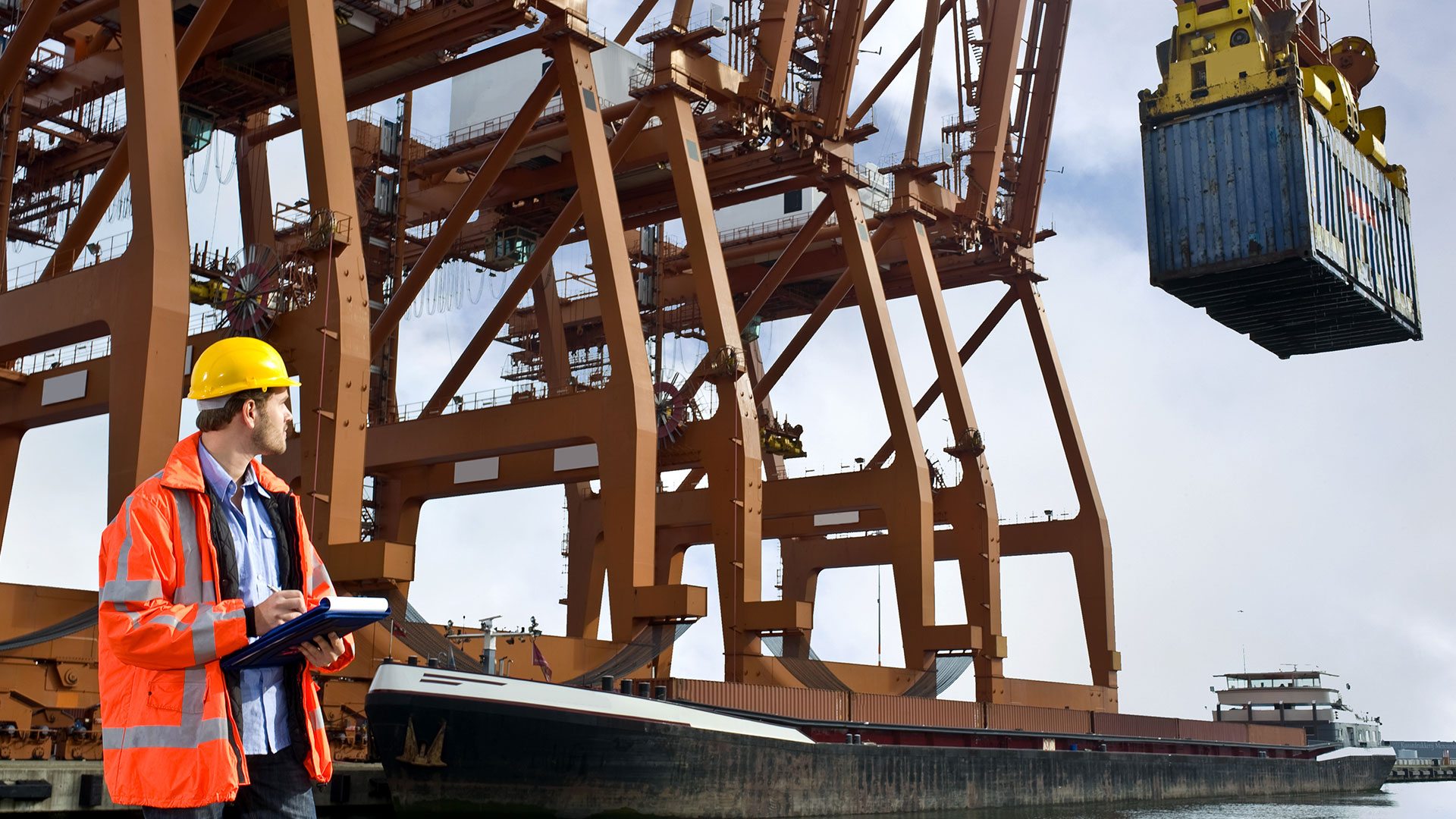Importing in today’s global marketplace requires years of experience in the intricacies of global commerce, close attention to detail, and an understanding of changing regulations. That’s why Abbasi Group seasoned management team is equipped to help you meet your critical delivery deadlines from duty classifications and documentation to traffic and distribution, you can relax knowing that Abbasi Group can handle all of the details whether your cargo arrives by ocean, air, truck, or rail into any port.Abbasi Group offers both standard and specialty types of customs clearance, duty draw back programs and specialized documentation services. From filing a bond to organizing cargo delivery, our experts are available to answer your technical questions. Our professional staff is well versed in handling all types of commodities from steel to food products, textiles and cosmetics to computer hardware, Specialized goods often require technical expertise.
Abbasi Group expertise in taking care of all necessary documentation and formalities will allow your company to avoid unnecessary delays and penalties because Abbasi Group attends to your needs in a professional manner you will save valuable time and reduce costs. Fast, reliable, personalized and accurate Customs Brokerage services are the characteristics of Abbasi Group.
Today, we are the largest privately held Customs Broker. Our worldwide network of agents accommodates customs clearance of your shipments destined for foreign countries. your goods are released at all ports quickly and efficiently. We take a proactive approach in serving our customers. We keep you informed on the latest customs regulation updates that will potentially affect your business. Abbasi Group delivers top quality warehousing and distribution services as part of our complete logistics solutions package.
DDP Incoterms:
DDP is one of the Incoterms rules developed by the International Chamber of Commerce and is quite widely used within international trade. DDP stands for “Delivered Duty Paid” which means that the seller delivers the goods when the goods are placed at the disposal of the buyer, cleared for import on the arriving means of transport, and ready for unloading at the named place of delivery.
The seller bears all the costs and risks involved in bringing the goods to the place of destination, has an obligation to clear the goods not only for export but also for import, to pay any duty for both export and import, and to carry out all customs formalities. This rule may be used irrespective of the mode of transport selected and may also be used where more than one mode of transport is employed.
In all documentation, the DDP freight Incoterms is followed by the name of a place like DDP, because under this Incoterms rules, the named place is the place where delivery takes place and also where the risk passes from the seller to the buyer.
DDP Incoterms is usually used by a buyer who does not want to enter into any kind of transport contract with any entity and would rather let the seller handle all these responsibilities right up to their door. In DDP shipping, the seller has the maximum obligation as it involves the delivery of the goods to the buyer at the agreed destination and in that sense, may be considered as the opposite of EXW which involves the buyer picking up the cargo from the seller’s door.
Under DDP Incoterms, the seller is obliged to
- Take care of all export clearance formalities at the origin including any and all export permits, quotas, special documentation, etc. relating to the cargo.
- Cover the cost of transportation from the packing area to the named place of delivery.
- Arrange contracts of carriage with the various carriers up to the named place of delivery including any on-carriages wherever it is applicable.
- Ensure that all risks are covered up to the agreed place of delivery.
- Ensure that the goods arrive at the destination as the risk and responsibility of the seller ceases only when the cargo is at the agreed place of delivery.
- Arrange and pay for customs clearance formalities at the destination port(s), all customs duties and VAT if applicable and all the charges of the carrier(s) till the agreed place of delivery.
In a DDP trade, the buyer’s activities are limited to
- Taking care of any further movement from the agreed place of delivery
- Covering themselves for any risk and insurance past the agreed place of delivery
This agreed place of delivery could be
- The warehouse of the buyer or their agent
- End user’s premises
- A border post
- Or any other point agreed between the buyer and seller
Under DDP Incoterms neither the buyer nor the seller is obliged to insure the goods and this insurance requirement is not specifically covered by the Incoterms rules. This crucial issue must be discussed and agreed upon as part of the sales contract and terms of sale.
From above, although it may seem that the buyer has it easy and can take it easy, this may come at a cost. The reason is that in the case of a DDP shipment, the buyer depends totally on the seller to everything from origin door to destination door. This means that the buyer could be at the mercy of the seller in terms of costs as there could be certain costs that the buyer may be better equipped to procure than the seller. For example, a buyer may have better rates and services at the destination than the seller who is sitting somewhere else and may need to use the services of an agent to do all the work on their behalf.
The buyer also needs to ensure that the seller is able to do the customs clearance and all other formalities without any delays because at the end of the day it is in the buyer’s best interest to get their cargo delivered on time. The buyer needs to remember that under DDP, although the seller is doing all the work, the buyer might end up paying for all of this as the seller’s product price will include all these charges.
If you are a seller on DDP Incoterms, then it is advisable that you check and ensure that you or the agent that you may appoint at destinations can handle the import clearance at the destination without incurring unnecessary costs. As a seller under DDP shipping terms, it may also be in your best interest to ensure that you have a reliable freight forwarder or agent at destination who does not take you for a ride and ensures that all costs are verified.
In some countries, the buyer may be eligible for certain tax benefits which could be returned to you as a seller under DDP as agreed with your buyer.
If you are selling on DDP shipping terms, your obligation ends with the delivery of the goods at the named place, cleared. But in some cases, you may need the assistance of the buyer in securing some documents required for the local customs clearance. Remember though, you as the seller are still liable for all costs and risks till the agreed place of delivery.
If you are a seller trading under DDP Incoterms, you may need to take cognizance of CISG (Contracts for the International Sale of Goods) or other corresponding provisions in the relevant national Sale of Goods Acts. These provisions may provide you with some relief from any unforeseen or reasonably unforeseen circumstances that may prevent you from delivering on DDP shipping terms. As with all Incoterms, it is important that the point of delivery is expressly discussed and agreed between the buyer and the seller.
Our Services
![]() NVOCC
NVOCC
![]() Ocean Freight Forwarding
Ocean Freight Forwarding
![]() Air Freight Forwarding
Air Freight Forwarding
![]() CIS Destination
CIS Destination
![]() Cross Trade Services
Cross Trade Services
![]() Custom Clearance
Custom Clearance
![]() Afghan Transit Movement
Afghan Transit Movement
![]() Break Bulk Cargo Services
Break Bulk Cargo Services
![]() Out of Gauge Cargo Services
Out of Gauge Cargo Services
![]() Project Management
Project Management
![]() Project Transportation
Project Transportation
![]() Exhibition Cargo Services
Exhibition Cargo Services
![]() Personal Baggage Forwarding Clearance
Personal Baggage Forwarding Clearance
![]() Perishable Cargo Services
Perishable Cargo Services
![]() Hazardous Cargo Services
Hazardous Cargo Services
![]() LCL/Consolidation Services
LCL/Consolidation Services
![]() ISO Tanks
ISO Tanks
![]() Vessel Chartering
Vessel Chartering





